Moving Future Healthcare Technology Solutions Closer to Reality in 2023
Sometimes we frame healthcare information technology as the cause of (physician EHR frustrations) and hope these healthcare technology solutions can solve our most vexing problems.
Those roller coaster expectations can create frustration. For example, electronic health records (EHRs), data analytics, and interoperability solutions have evolved over decades without completely delivering on promises of improving patient care quality and lowering costs.
But those technology solutions have advanced healthcare’s mission much more than we give them credit for. We’ve come further with digital healthcare transformation than we sometimes take a breath to realize.
Let’s take a quick, positive look at some of the top evolving and breakthrough healthcare technology solutions for 2023, with examples of how digital health innovation will improve the patient care experience.
Healthcare Technology Solutions for 2023
Here are five exciting current and emerging healthcare technology solutions that will improve care quality, reduce costs, and elevate patient experience in 2023 and beyond.
Artificial Intelligence and Machine Learning
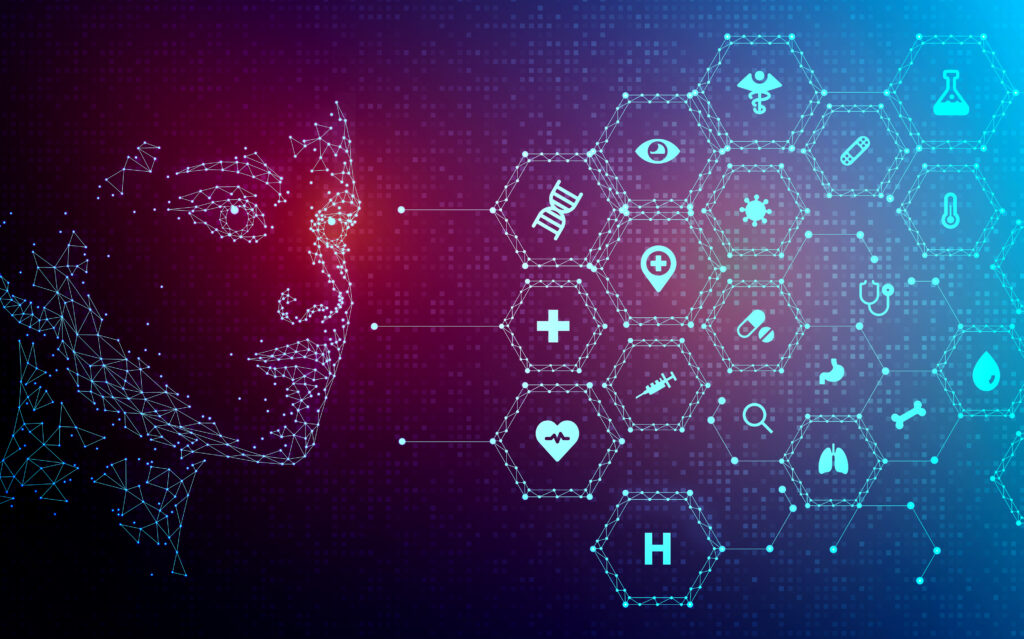
Healthcare artificial intelligence (AI) technology can understand and interpret huge waves of incoming health data much faster than our brains. It makes sense of billions of health data points to improve care decisions, population health analysis, clinical trials, and much more.
Machine learning is a version of AI enabling software and devices to learn from experience to work more productively. Care coordination, revenue cycle workflows, and every care process get more effective and precise daily without additional human software programming.
FHIR (Fast Healthcare Interoperability Resources)

FHIR will fuel the future of healthcare interoperability.
HL7 International first released the advanced, flexible FHIR standard for API-based EHR and health data integration in 2014. FHIR has moved interoperability in healthcare technology solutions ahead in many big ways:
- Allows systems to share unstructured data such as images, notes, and PDFs, closing a huge interoperability gap.
- Embraces more modern web-based API technologies that developers prefer, such as RESTful protocol, JSON, XML, and RDF.
- Introduced “resources,” common healthcare concepts such as patients, lab results, insurance claims, and appointments, to simplify API development.
Epic, Cerner, Apple, and other health technology leaders have embraced the FHIR standard. The 21st Century Cures Act and ONC also have mandated FHIR adoption, further establishing it as the future standard for healthcare data sharing.
SMART on FHIR

SMART on FHIR standards enable swift development of patient apps connected through FHIR APIs. This is thanks to its letting users’ phones, devices, and apps obtain data from multiple EHR systems without being restricted to a single one. These healthcare technology solutions hence enable patients to connect directly to their FHIR-connected EHR system data from anywhere.
SMART defines how outside apps work with EHR FHIR APIs to connect users and deliver the right health data. Users see and use data from healthcare systems without the actual data moving from one system to another. Providers, payers, and patients can view health records, monitor or schedule tests by using data from any FHIR-connected EHR or system.
HL7
“The world is still running on HL7 Version 2,” according to David Vawdrey, chief data informatics officer at Geisinger Health.
While healthcare buzzes about FHIR, HL7v2 remains the most widely used healthcare interface standard.
HL7 data interface standards have helped healthcare providers and software vendors:
- Open consistent, complete patient views of EHR system data
- Invest more strategically in technology solutions and upgrades built on a common standard
HL7 will be a foundation for healthcare data interoperability for years to come.
Internet of Medical Things (IoMT)
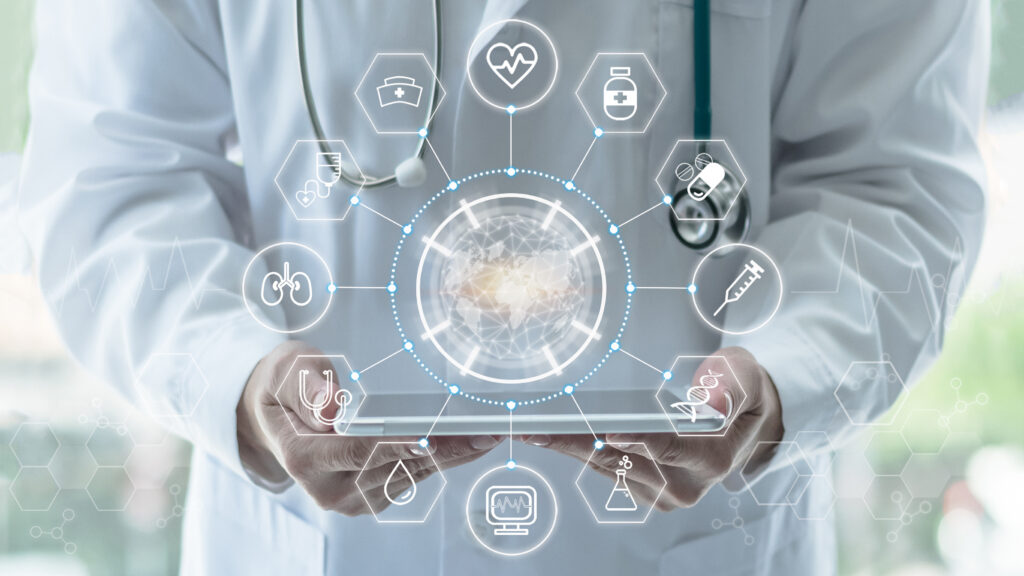
Healthcare roams along with us everywhere we go now. Wearables, home A1C monitors, implanted heart devices, and phone apps can capture, track, and share personal health data to help patients manage confident care with their physicians. Sophisticated IoMT devices and solutions connect people to healthier lives in ways we only dreamed of even five years ago.
And it’s more than just smartwatches logging our daily steps. IoMT among the healthcare technology solutions will continue to connect people with healthier lives:
- Monitor blood pressure and share data with doctors
- Easily monitor and share glucose readings much more reliably and conveniently
- Provide real-time warnings of the onset of strokes or cardiovascular events
- Provide more accurate self-reporting of health and activity
- Let patients quickly and regularly administer their own tests anywhere and share the data immediately, replacing costly home care visits
How This Healthcare Technology Solutions Will Improve Care for Everyone
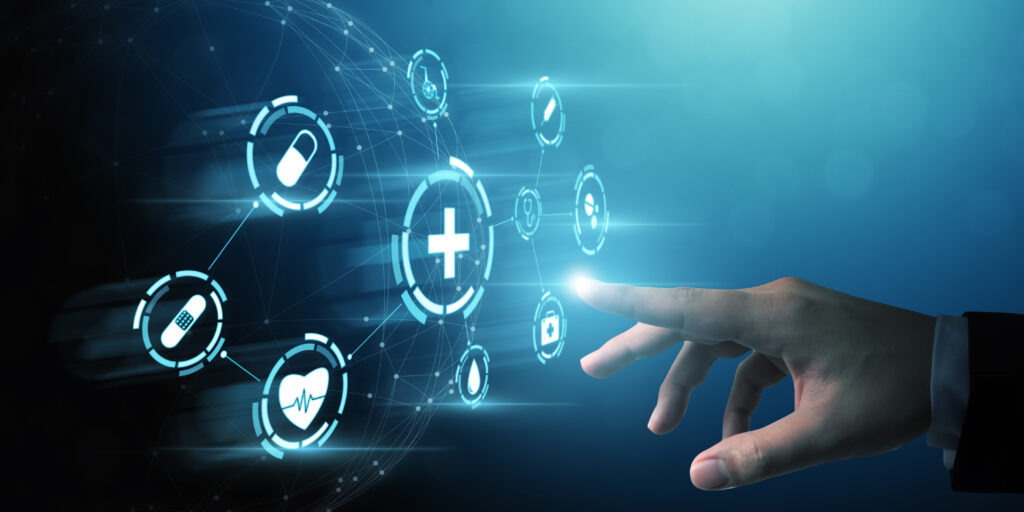
These remarkable healthcare technology solutions are the means, not the end. The ends are healthier and happier patients and communities. Here are just three examples of how these technology solutions promise to improve patient access and outcomes.
Patients Can See and Own Their Health Records and Care Planning
Patients increasingly have their personal health data and care planning at their fingertips. IoMT watches and monitors capture and shares health indicators in real-time with doctors and family.
Apple, Epic, and others give patients direct access to their own FHIR-connected EHRs with simple apps built using SMART on FHIR. Healthcare providers build online patient portal solutions as part of their pioneering healthcare technology solutions, making it easy for patients to shop for, schedule, and coordinate their care.
FHIR-based data sharing and machine learning automate claims management and billing processes that keep getting smarter on their own. And discharge planners can establish the most effective care plans and help patients stay on track with remote patient monitoring and connected communications.
Doctors Have Reliable Decision Support at the Point of Care
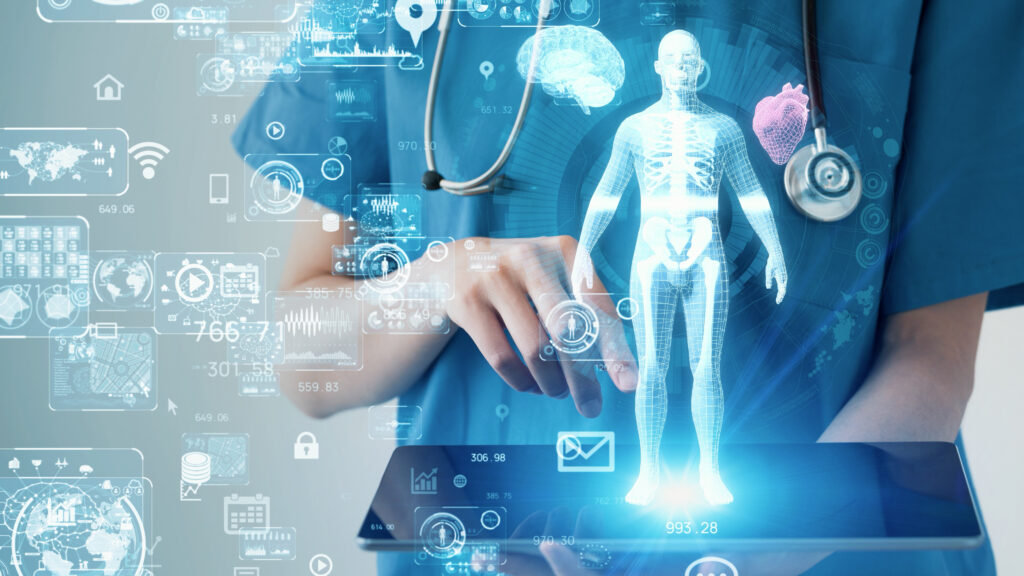
Consider this scenario: A harried doctor on his or her rounds gets the immediate, specific patient information and guidance to make the most precise diagnoses and suggested personalized treatments.
What makes this a reality? The implementation of healthcare technology solutions, specifically:
- The patient already shared cardiovascular and symptom data collected on their watch or other devices.
- AI and powerful analytics make sense of huge volumes of population health, clinical, pharmaceutical, and research data to recommend accurate diagnoses and effective care plans.
- FHIR APIs push complete and accurate data from multiple EHRs and information systems to the right people and places during the care journey.
- AI and strong interoperability help guide doctors to make better, faster decisions at the point of care and spend more personal time with patients.
Life Sciences Can Conduct Faster, More Accurate Clinical Trails

New healthcare technology solutions support comprehensive and complete clinical trials that get safer, more effective drugs and devices into the hands of doctors and patients, faster than ever.
AI, IoMT personal medical devices, remote monitoring, ePRo and eCOA, integration technologies such as FHIR and SMART on FHIR, and more healthcare technology solutions promise to boost five success factors for life sciences research:
- Find and recruit subjects.
- Keep participants active in trials.
- Connect and share data with EHRs.
- Manage compliance.
- Configure and test your most successful life sciences trial software platform.
Improve Your Healthcare Technology Solutions From Today
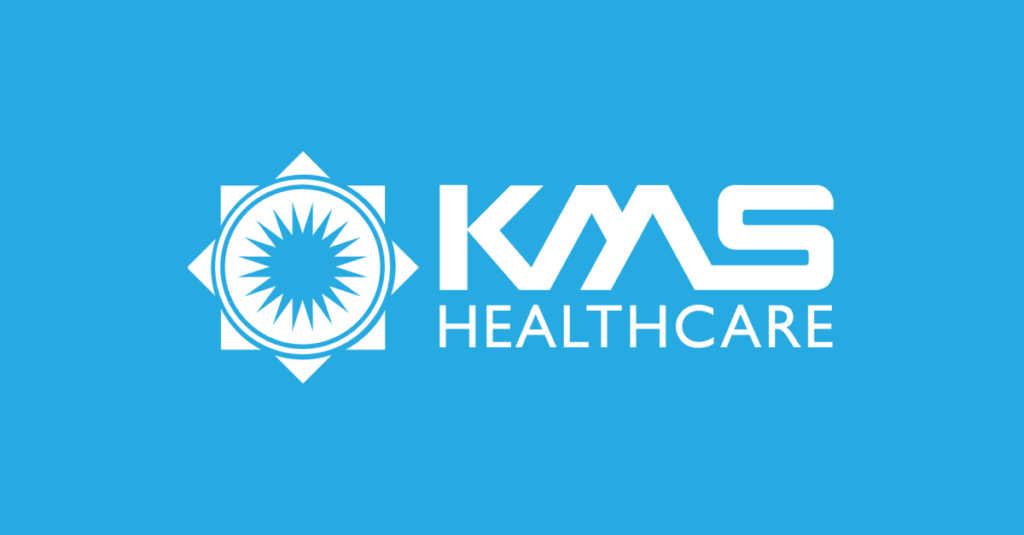
Advancing healthcare technology solutions and thoughtful vision bring us closer to true value-based care every day, ready to propel health outcomes and patient experience.
It’s a lot of heavy lifting to build a productive healthcare technology solutions for software companies that’s not just based on one or another product, but instead advances all of your goals and results for exceptional patient care at lower costs.

Consider KMS Healthcare your trusted partner with experienced, flexible, problem-solving healthcare software, healthcare technology, and product development consultants passionate to achieve your goals.